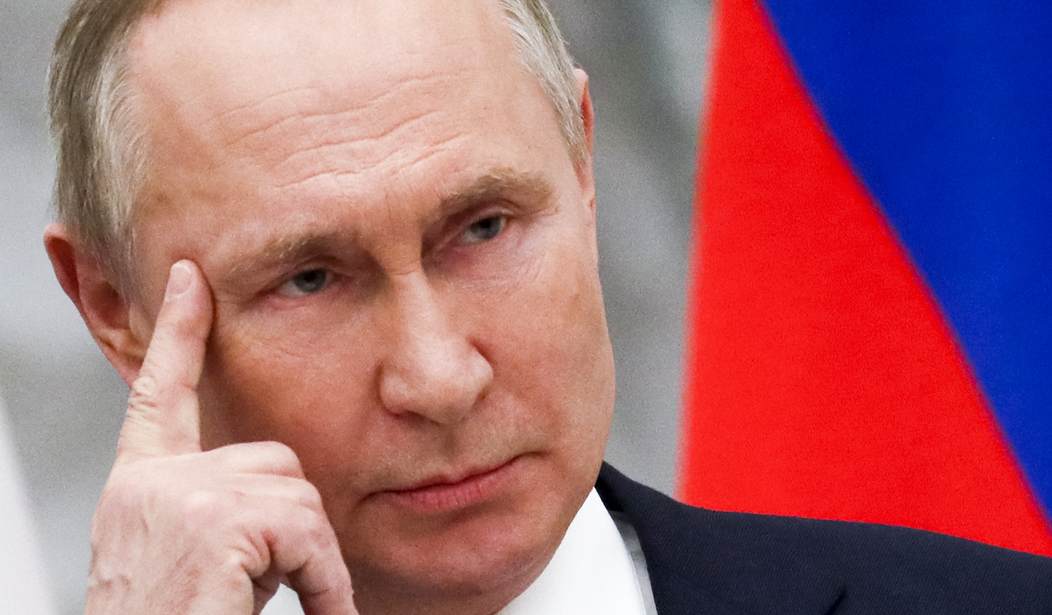Marina Ovsyannikova boldly held up a poster with the words “No War” written in English during an evening news broadcast on Russian television. She quit her job in protest of Putin’s war in Ukraine. Though she was offered asylum in France by President Emmanuel Macron, she turned the offer down because she wants to remain in Russia. She was arrested, fined, and released. Her legal troubles are not over, though, and she may face prison time. Her brave stance is notable because not only is it illegal to protest in Russia, Putin has a reputation for brutal retaliation against those who oppose him.
Other prominent Russians are coming forward and leaving their positions, too. Anatoly Chubais, Putin’s climate change envoy, stepped down and left the country. Chubais is a former deputy prime minister. He is credited for recommending the administration hire Putin during the Yeltsin years.
Arkady Dvorkovich, also a former deputy prime minister and currently the chairman of the International Chess Federation (FIDE), criticized Putin’s war in comments to Mother Jones magazine on March 14. He came under fire from the Kremlin for that. Dvorkovich decided to step down from his role with the foundation after a top official in the United Russia party demanded he be fired.
A longtime anchor at the state-funded NTV channel, Lilia Gildeyeva decided to quit her job after Putin invaded Ukraine. She told the independent news site The Insider, “It was an immediate nervous breakdown. For several days I couldn’t pull myself together. The decision was probably obvious right away. There won’t be any more work.” She admitted that news coverage is tightly controlled by Russian authorities and receive orders from them. She didn’t quit, though, when Russia annexed Crimea in 2014. Now she says, “When you gradually give in to yourself, you don’t notice the depth of the fall. And at some point, you find yourself face to face with the picture that leads to Feb. 24.”
Another Russian journalist, Zhanna Agalakova, also quit her job. She worked for another state-run television channel, Channel One, for more than 20 years. She worked as an anchor and also as a correspondent in Paris, New York, and other Western countries. Three weeks after Putin’s invasion, it was reported that she quit and is in Paris. She gave a news conference in Paris and along the way, she explained how propaganda works.
“We have come to a point when on TV, on the news, we’re seeing the story of only one person — or the group of people around him. All we see are those in power. In our news, we don’t have the country. In our news, we don’t have Russia,” Agalakova said.
Referring to the 2014 annexation of Crimea and the support of the separatists in Ukraine, she said that she “could not hide from the propaganda anymore,” even as a foreign correspondent. Agalakova said she had to “only talk about the bad things happening in the U.S.”
“My reports didn’t contain lies, but that’s exactly how propaganda works: You take reliable facts, mix them up, and a big lie comes together. Facts are true, but their mix is propaganda,” she said.
She blasted the state media for repeatedly using Putin’s description of Ukrainian opponents as “Nazis”. She says he does so to hit a nerve in Russia, a country still bearing scars from World War II. “When, in Russia, we hear the word ‘Nazi’, we only have one reaction — destroy. It’s a manipulation, a huge lie.”
Mikhail Baryshnikov, the legendary male classical dancer of the 1970s and 1980s, cautions against imposing sanctions on artists and sports stars.
This month conductor Valery Gergiev and operatic soprano Anna Netrebko were among those who lost prestigious work in the west due to their ties to Vladimir Putin’s regime.
“An open exchange in the arts is always a good thing,” Baryshnikov said. “I don’t think it’s right to put the weight of a country’s political decisions on the backs of artists, or athletes, who may have vulnerable family members in their home country. For people in those exposed positions, neutrality is a powerful statement. And if you want me to be specific, Daniil Medvedev should play Wimbledon.”
Last week, the British sports minister Nigel Huddleston said the government would need assurances that any sportspeople entering the UK “are not supporters of Vladimir Putin”.
In other words, don’t punish Russian artists and sports players over Putin’s war. They aren’t to blame for Putin’s actions. The Mad Man of Moscow acts on his own. Baryshnikov is raising money for an organization that is anti-Kremlin and promotes Russian culture, as well as aids refugees.
Baryshnikov, 74, who was born in Riga, Latvia, and who defected from the USSR to Canada in 1974, wants to improve people’s understanding of Russia. He has joined fellow prominent artists who are critical of the Kremlin to set up True Russia, a GoFundMe campaign to spread a better understanding of Russian culture and to raise money to help refugees.
The campaign also involves the Russian writer Boris Akunin and leading Russian economist Sergei Guriev. Together they have issued a call to other people in exile, arguing they “do not have the right to remain idle”.
“The hundreds of thousands of Ukrainians who have lost their homes, their livelihoods, their loved ones, and even their lives are bearing the full brunt of the blow. But all of us who speak Russian and belong to the Russian cultural world feel the blow too. The very word Russian has become toxic,” says their campaign statement.
Nothing will change until Putin is gone. Even then, there is no guarantee that anything will change in Russia, depending on who succeeds him. It’s a matter of how much strength the renewal of the Cold War ushered in by Putin continues to have after Putin is gone.








Join the conversation as a VIP Member